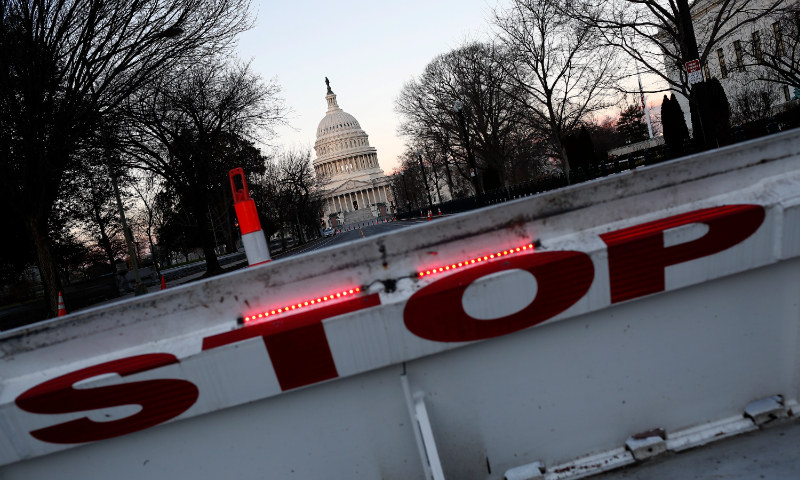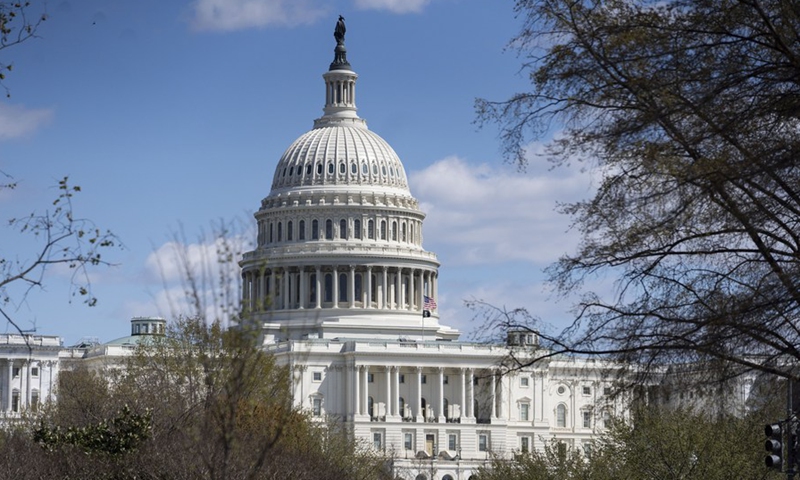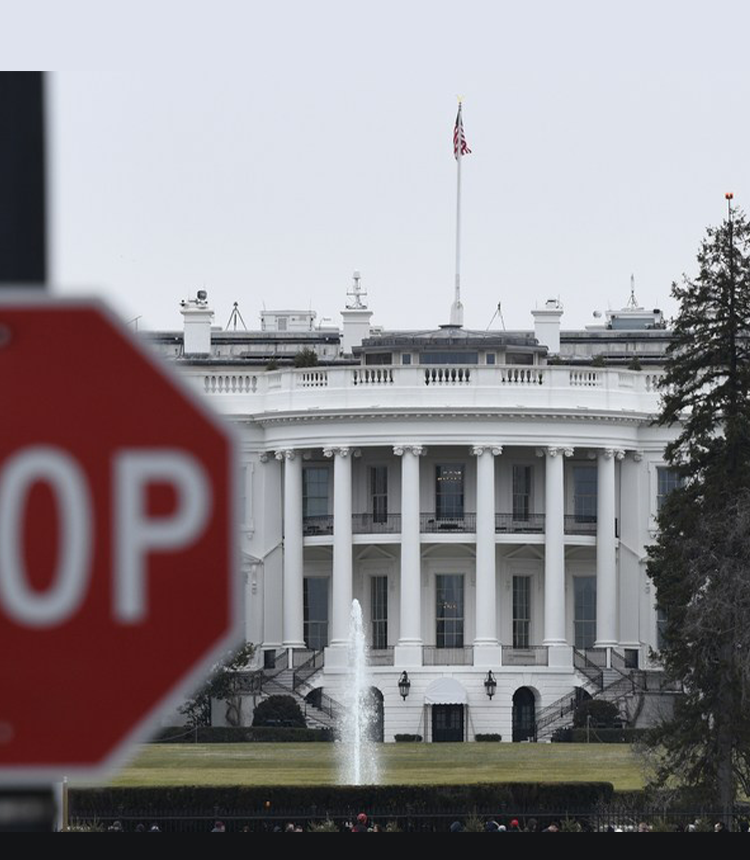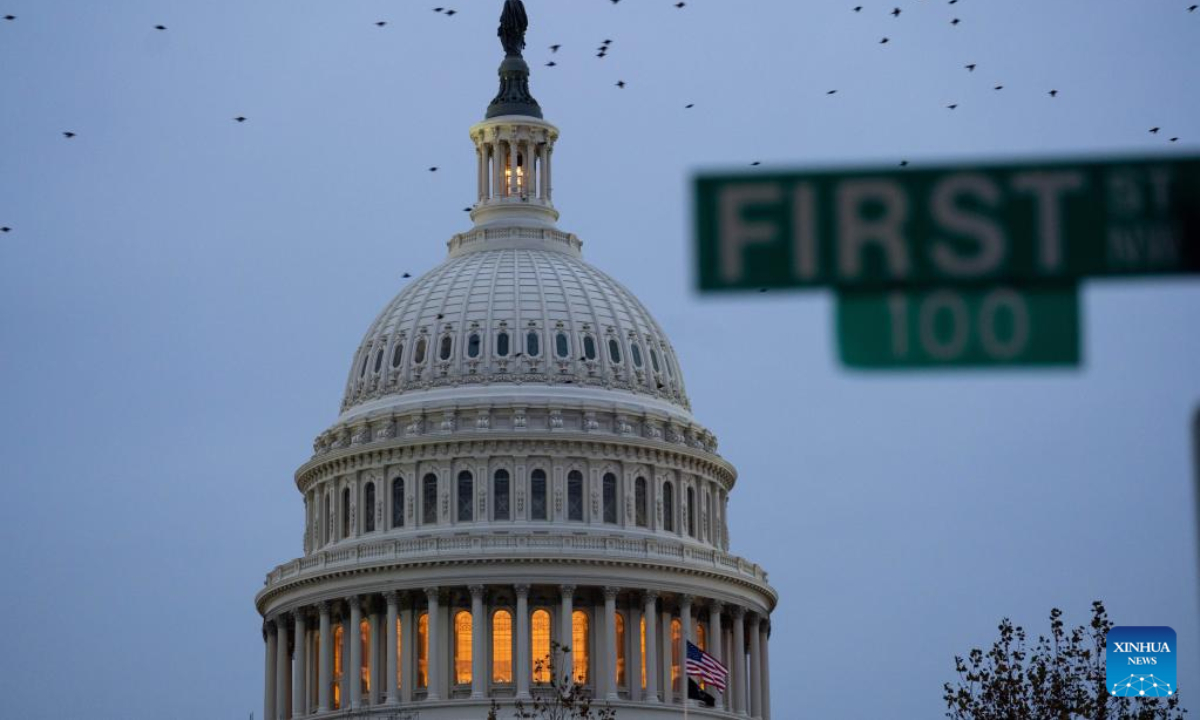
The US Capitol is shown during a partial shutdown of the federal government on December 24, 2018 in Washington. Photo: VCG
The US federal government's public debt has skyrocketed to an unprecedented $34 trillion, marking a historic milestone. Simultaneously, the federal government finds itself on the brink of a funding battle. Chinese experts have cautioned of a possible "shutdown crisis" within US federal government agencies, emphasizing the ongoing confrontation over US fiscal policy underscores the long-standing issue of an irresponsible economic policy and persistent partisan conflict.
According to the Daily Treasury Statement, the overall amount of public debt outstanding increased to $34.001 trillion from $33.911 trillion on Thursday. Additionally, the debt that counts toward the federal debt ceiling rose to $33.89 trillion on Friday from $33.794 trillion on Thursday, according to Reuters.
While experiencing record high public debt, the strife between Republicans and Democrats relating to funding in the New Year lingers.
In November 2023, the US Congress passed a temporary short-term bill, known as a Continuing Resolution (CR) to avoid a government shutdown, giving lawmakers over two months to negotiate the annual fiscal budget for 2024. According to the temporary bill, the US government will face partial agency funding expirations in January and February, with the most recent deadline being January 19, 2024.
The surging public debt will result in increased interest payments. It is crucial to find middle ground between repaying enormous amounts of interest on the entire public debt and maintaining the operational capacity of the federal government. Experts noted that the US cannot afford to jeopardize its creditworthiness because of a debt default, the loss of the US' own assets, the credibility of the US dollar, and the loss of confidence in the US economy by all countries, which will also be among the cost.
"Just like riding a bicycle, if you press the brake on one wheel, neither can go forward. The whole bike will fall apart if the person in charge fails to do anything to stop the divergence," an expert on US studies who preferred to be anonymous told the Global Times.
As the debt ballooned, Democrats had been demanding that the debt ceiling be raised without any spending cuts attached, while Republicans demanded deep cuts to Democratic priorities first, highlighting the partisan divergence, media reports said. According to Reuters, Republicans are demanding to reduce fiscal 2024 discretionary spending below caps agreed in June.
In June, the House and the Senate had agreed to extend the suspension of the debt ceiling until 2025 and additionally, it imposes limitations on government spending. By raising the debt limit, the government will be able to borrow money to cover existing debts, according to a report by AP.
"Both parties are playing games with the US economy. Driven by interests of partisan politics, they'd rather make a bet with the normal operations of the government and well-being of the US public," Diao Daming, a professor at the Renmin University of China in Beijing, told the Global Times.
The total amount of US debt remains high and continues to show a growing trend, constantly teetering on the edge of debt default. Experts noted that for a long time, the US has relied on issuing treasury bonds to sustain the operation of the federal government and its own economic activities, while maintaining the dominance of the US dollar globally through US bonds. Under this economic development model, the US has been able to shift the consequences of its economic and political problems onto other countries and over time, the US has developed a highly irresponsible policy inclination and habit, experts said.
Behind the US fiscal arrangement is the lasting sharp confrontation and collision between the Democratic and Republican parties in the US, and between Congress and the White House. The two parties will continue to confront in the chaotic political environment as it is difficult for them to resolve the debt-related issue in a sustainable and benign way, the anonymous expert mentioned above said.
Song Guoyou, deputy director of the Center for American Studies, Fudan University, believed that if the Congress continues to fail to pass any budget spending bill, the federal government will once again face "shutdown crisis."
Reuters anticipated that the November presidential and congressional elections could make it increasingly challenging to reach a compromise.
"The elections will for sure further complicate the issue. But it is still too early to tell whether and how Democrats and Republicans are willing to compromise, while engaging in partisan disputes holding the "debt bomb" in their hands," Diao said.
Diao believes that the two parties will have to weigh the consequences of a possible governmental agency shutdown, which will undoubtedly have a major impact on all levels of American society, as many government operations will not continue to operate and many functions will be severely curtailed.
There have been 21 federal government shutdowns since 1976, including 10 shutdowns since 1980 that forced government employees to take furlough, according to VOA.
The report said the most obvious scenario for the public is that all government work will be delayed, such as applications for clinical trials, gun permits and passports, and other government services will be affected. Businesses with close ties to the federal government, including government contractors or tourist services around national parks, could experience disruptions.




